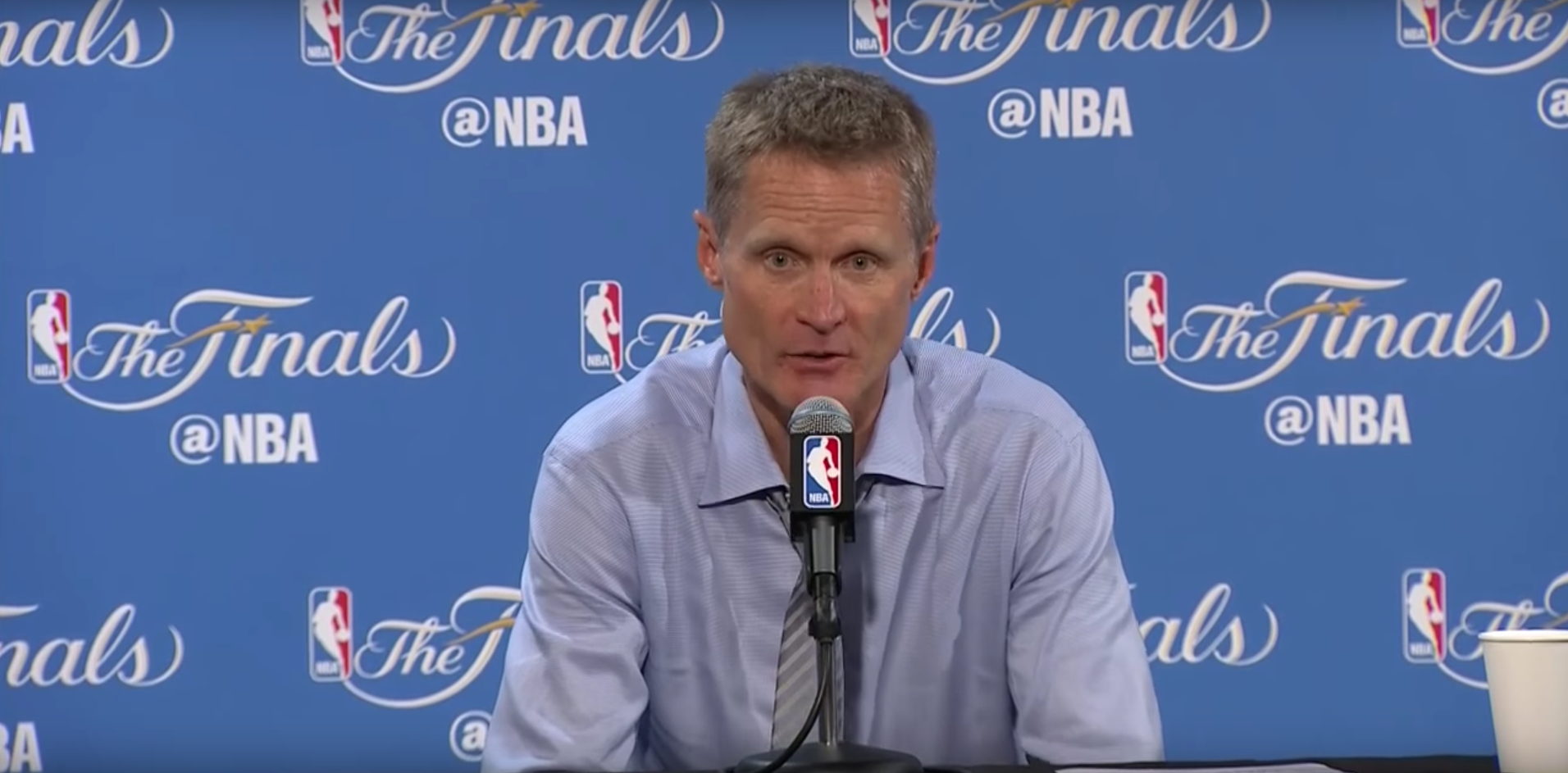Steve Kerr, head coach of the Golden State Warriors, recently said he has used marijuana twice in the past 18 months in order to help him with chronic back pain. Ironically, “chronic back pain” was also the name of the weed strain he smoked. (This is not at all verified).
Public reaction to Kerr’s comments has been varied. Some think they show a need for reform in the NBA’s drug policies and a new perspective on the use of more mainstream pain killers, such as opioid pills. Other people think this sends a mixed message on drug use to many of the NBA’s young fans and could prove to be a slippery slope to allowing other substances to work their way into the league.
While there hasn’t been any major reaction from the NBA to Kerr’s statements, there is no doubt he is bringing a political topic into the forefront of public discourse. Hundreds of sports media members, professional and amateur, were posting on Twitter about Kerr’s comments and their own personal takes on the issue.
In an area of our lives that is generally apolitical (sports), comments like Kerr’s bring divisive debates into a community normally connected by its unified escapism.
Kerr is far from the first sports figure to delve into a social issue. In fact, there has been a recent trend in political action from professional athletes. WNBA players wore shirts that read “Change starts with us, justice and accountability,” various players in the NFL have either knelt or raised a fist to protest the national anthem and Adrian Gonzalez of the Los Angeles Dodgers chose not to stay in the Trump International Hotel with the rest of the team during the playoffs.
I could continue listing instances of sports figures making social or political statements in 2016 and even more from the past, such as Muhammad Ali, Bill Russel, Jim Brown and LeBron James. This intersection of sports politics is not new, but it’s done by a small number. The vast majority of players are not outspoken on social issues. While political speech from athletes and coaches benefits the public by encouraging discussion of these issues, it can harm the player’s reputation. Specifically, if people disagree with a player’s opinion, they may risk losing sponsorships or apparel sales.
There is a rumor that Michael Jordan responded to the question of why he avoided politics by saying, “Republicans buy sneakers too.”
While this is just a rumor, who would claim this statement isn’t true? Identifying with a political issue makes you an automatic enemy of two groups: those who adamantly oppose the opinion and those who feel that sports and politics should remain separate.
Today, the separation between politics and sports is more and more of a fantasy. When members of the sports community speak out on an issue, they spark public debate at the cost of their reputation and, most likely, their bottom line.
As Jay Glazer and various other sports reporters have acknowledged, sports is escapism at its core, but that doesn’t mean it is useless as a means of advancing our country.
Perhaps debates will be more civil between people if they can have them while enjoying the success or mourning the failure of their shared sports team. Public exchange of ideas is important, especially for our divided nation, so comments like Kerr’s are an important step on our country’s path to healing.



